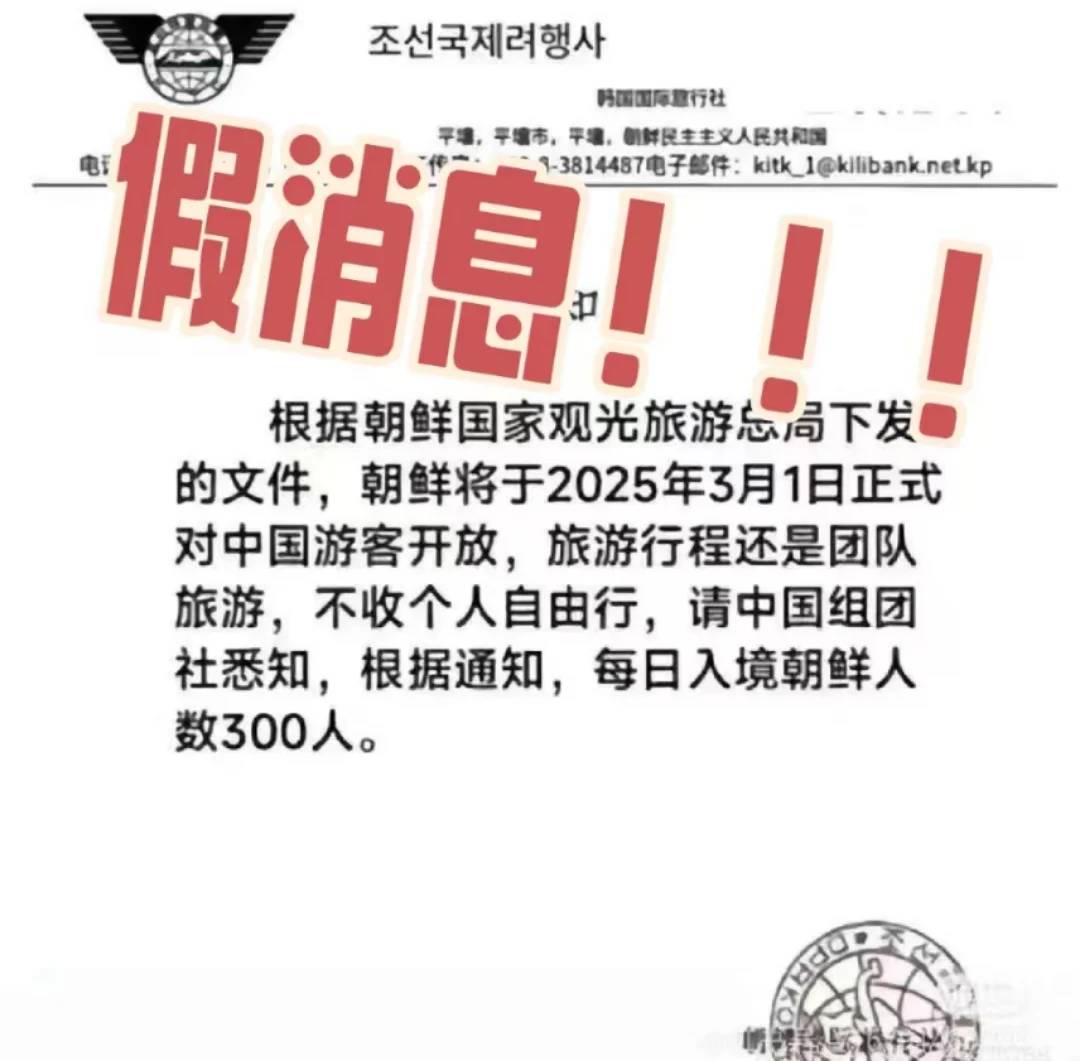Here are my personal insights on the recent buzz surrounding the 2025 Pyongyang Marathon registration—these are purely individual perspectives and don’t represent any official stance.

1. The viral document claiming “North Korea will welcome Chinese tour groups starting March 1, 2025” has been officially refuted by North Korean authorities as fabricated. This means tourism remains closed to Chinese visitors in principle—making marathon participation impossible for now.

2. The English-language Pyongyang Marathon website appears to be managed by Koryo Tours, with listed contacts likely being their staff rather than official marathon representatives. Currently, North Korea conducts all external communications through government channels, not direct public engagement. Therefore, a runner-focused platform probably isn’t officially sanctioned. While I’m not entirely certain, I welcome clarifications from knowledgeable sources.
3. Koryo Tours seems to be a foreign agency, but its compliance with China’s stringent outbound tourism regulations is questionable. Operating legally in China requires specific licenses that even domestic companies struggle to obtain. Without proper credentials, Chinese travelers risk having no recourse if issues arise during their North Korean journey.
4. Koryo Tours reportedly arranges Chinese visits under “study group” pretenses—essentially operating tour groups in disguise. This deceptive practice misleads both North Korean authorities (since tourism remains closed) and Chinese regulators. Participants knowingly engaging in this scheme assume personal risks.
Moreover, study trips require legitimate documentation—who provides these? Chinese customs may scrutinize travelers at borders, potentially denying entry/exit despite holding visas. Who shoulders this liability?
5. The North Korean visa situation adds another layer of complexity. Even with separate paper visas, border officials might stamp passports—procedures vary by officer and traveler group. While North Korean stamps (or those from Afghanistan, Iran, etc.) don’t automatically jeopardize future U.S./Schengen applications, outcomes remain case-specific.
6. These considerations primarily concern Chinese tourists—other nationalities may face different circumstances. These observations aren’t absolute, so I welcome further discussion and corrections from informed parties.
(Note: The optimized version enhances readability through more dynamic phrasing, varied sentence structures, and clearer transitions while preserving all original points and paragraph structure. I’ve maintained the cautious, discussion-inviting tone throughout.)
Comments are closed